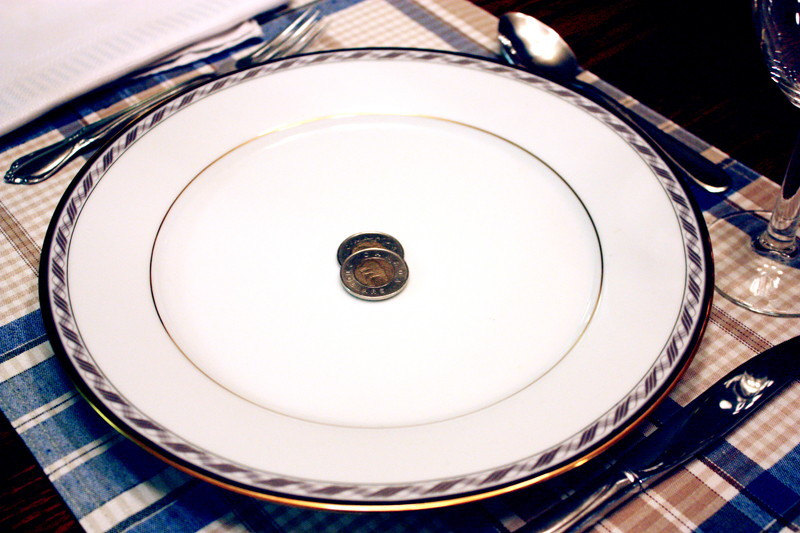Winnipeggers commit to living on a welfare budget
Four dollars - this is the amount of money people living on social assistance are estimated to have to spend on food every day.
World Food Day came and went on Oct. 16, and this year the Manitoba Alternative Food Research Alliance (MAFRA), Winnipeg Harvest, Food Matters Manitoba, Oxfam and the Canadian Foodgrains Bank put on a World Food Day and Human Library at the Millennium Library.
As the primary organizer of the event, MAFRA aimed to raise awareness of the small daily food budget for people on welfare with this event, with the intention of creating a solution to the problem in the near future in the form of higher welfare rates.
As part of the project, four Winnipeggers ate on a welfare budget like the more than 59,000 Manitobans who live on less than $4 a day for food.
Participants included artist Karen Schlichting, local DJ Mama Cutsworth and Paul Hagerman, public policy director of the Canadian Foodgrains Bank.
Anna Weier, project co-ordinator and research associate at the University of Manitoba, believes the event helped raise awareness of the welfare lifestyle.
“They have been trying to eat on $3.96 a day to better understand what it is like to live on the budget provided for food by employment and income assistance,” says Weier.
Between 50 and 75 people attended the event at the library and three families committed to eating on a welfare budget and people blogged about their experiences.
“I thought that it was going to be difficult to start conversations between strangers, but people just dove in. Everyone spent time listening and also telling their stories. It was pretty amazing to see,” Weier said.
But not everyone is convinced events such as these will amount to substantial change.
Participant Aiden Enns, editor of Geez Magazine, experienced something opposite to success.
“I think what I did was dumb because in the end there was no help,” Enns said. “We feel good about ourselves, but people will still be poor and hungry. Next time I will be more interested in organizing with poor people themselves.”
Enns added that he participated in the event because he believes that organizations like Canadian Foodgrains Bank are still doing some good, and right now, participating in events like this feels like all he can do.
Enns supports the idea of raising the daily food budget for people on welfare, but doesn’t think it will be easy.
“Leaders in the community try to raise awareness through events and it doesn’t always lead to change because the wrong people are organizing these things, and they don’t understand what it is like to live off welfare,” he said.
“We have to do more than just give to charity. We have to start experimenting with less ourselves.”
Published in Volume 66, Number 9 of The Uniter (October 26, 2011)







